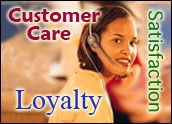
For years, the promise of the truly mobile salesperson has enticed reps and sales operations professionals alike, yet a true pay-off has often been elusive as interface and bandwidth limitations conspired to lower industry expectations of success.
With the lines now being blurred between handheld and desktop devices, and wireless access and GPS intelligence growing more common, is sales mobility now a reality whose time has come?
Customer relationship management (CRM) and Sales force automation (SFA) access via smartphones has been available for some time — indeed, mobile CRM access has been proven to increase team attainment of quota by 26 percent (“Sales Intelligence: Preparing for Smarter Selling,” February 2010) — but to what extent are Best-in-Class sales teams utilizing them? This upcoming Aberdeen research will examine whether top-performing organizations enable their road warriors not only with CRM, but with full-service platforms and applications incorporating voice and data, to help get them to quota faster than ever.
Business Context
Aberdeen research conducted for “Sales Forecasting: Analytics to the Rescue!” (June 2010) found that Best-in-Class companies were 79 percent more likely than Laggards (25 percent vs. 14 percent) to deploy mobile-enabled access to real-time sales forecast details. Providing their field sales force with the ability to understand their performance-versus-quota attainment on an “anywhere, anytime” basis allows these top performers to promote a culture of coaching, self-assessment and transparency that helped them out-perform Laggards across a number of key sales effectiveness metrics.
Given the rapid development of both personal computing power and mobile technologies in general, a number of cultural and technological trends have a direct impact on the potential value of sales mobility:
- Does attracting and retaining a quality sales force require a corporate technology and process mindset influenced by consumer trends and cultural sea changes? Moreover, are there benefits to the enterprise if it enables their sales team to work 24/7?
- With an ever-increasing percentage of the workforce in general, and sales professionals in particular, having grown up with wireless technology, the blurred lines between personal and business computing are amplified by the opportunity to use the same devices for both types of activity.
The convergence of Web activity, mobile and desktop computing has further muddied the traditional categories of when, where and how sales reps perform their duties. Does this create new opportunities for CRM adoption and sales force productivity by mitigating the traditional aversion to technology use long associated with sales professionals?
- As feature phones have mostly given way to smartphones, the technology access for remote or traveling sales staffers has grown from basic voice and messaging communications to advanced visibility into corporate data housed either on-premise or in the cloud, such as CRM-based contacts, companies and forecasts, as well as email use.
Now, as the new generation of tablet PCs arrives, with gesture-based interfaces and multi-touch displays initially popularized by Apple’s iPad, will remote sales activity morph from passive “see” to active “do” computing? Will sales reps no longer have to wait until day’s end to begrudgingly enter CRM data if the chance to accomplish the task is enabled by the same device hosting their email, Facebook, gaming and proposal generation applications?
Spotting Trends
Given the rapid development of both personal computing power and mobile technologies in general, a number of cultural and technological trends have a direct impact on the potential value of sales mobility.
This research will enable identifying these trends that impact the overall business landscape. Ultimately, this research will seek to help understand one fundamental question: Are today’s mobile sales forces not equal to, but potentially more effective than traditional, on-premise teams?
Peter Ostrow is research director of sales effectiveness at the Aberdeen Group. Participate in this research through this survey link to receive a complimentary copy of the final report.


















































